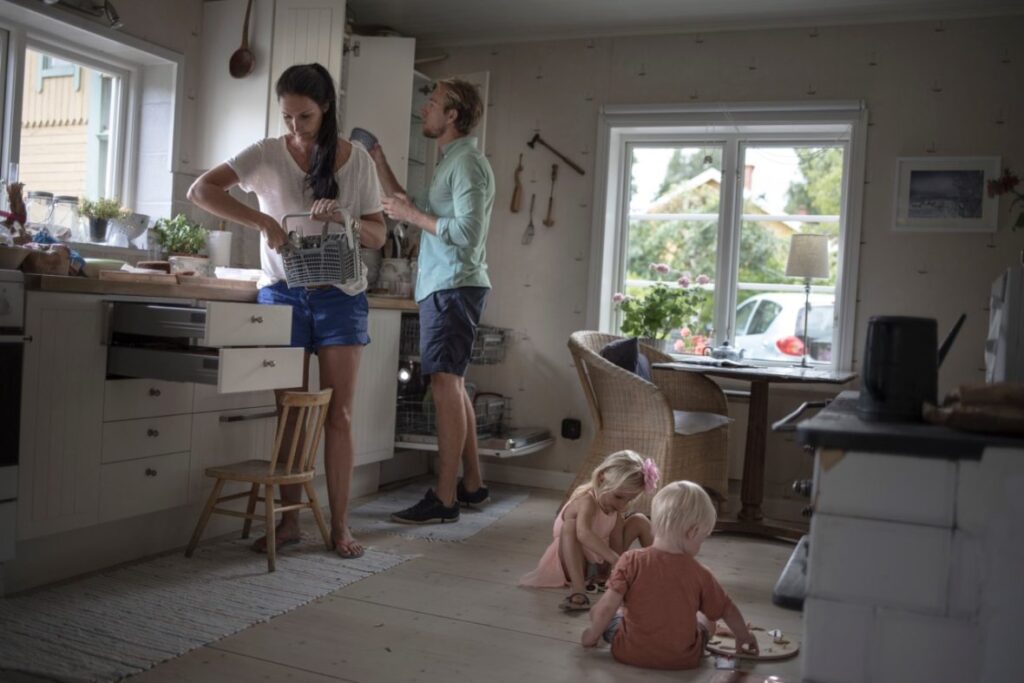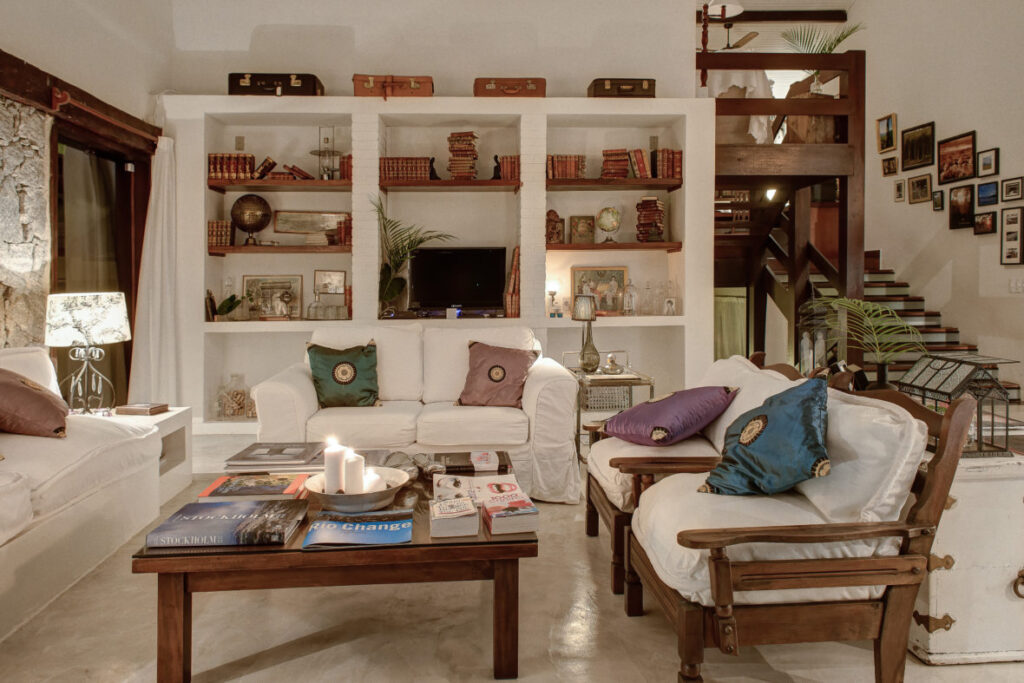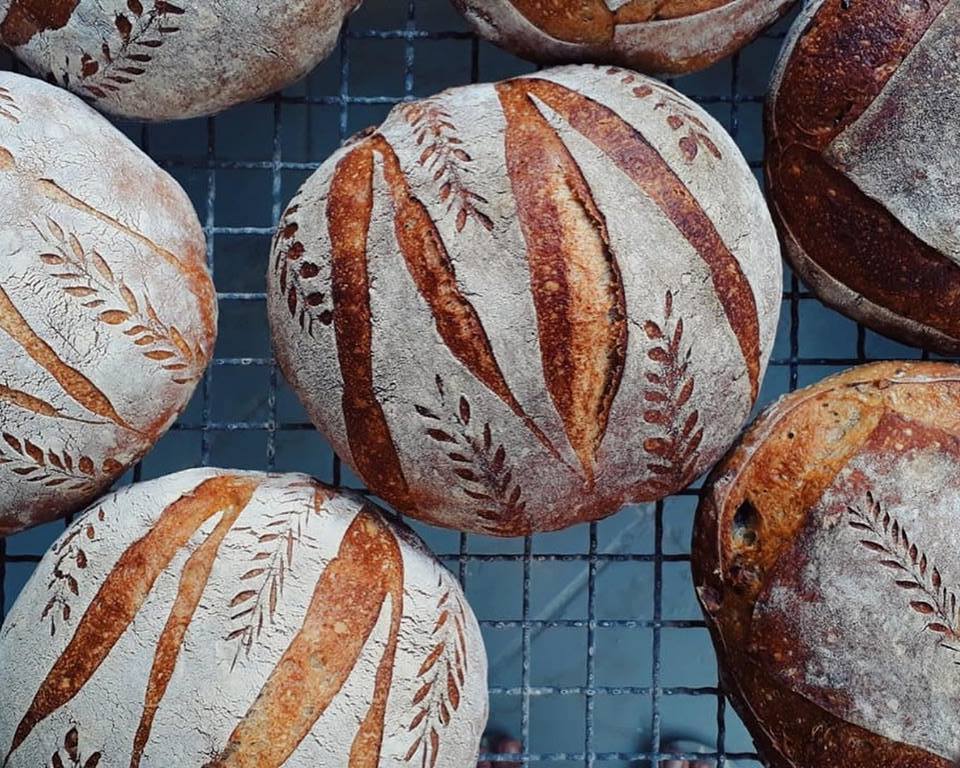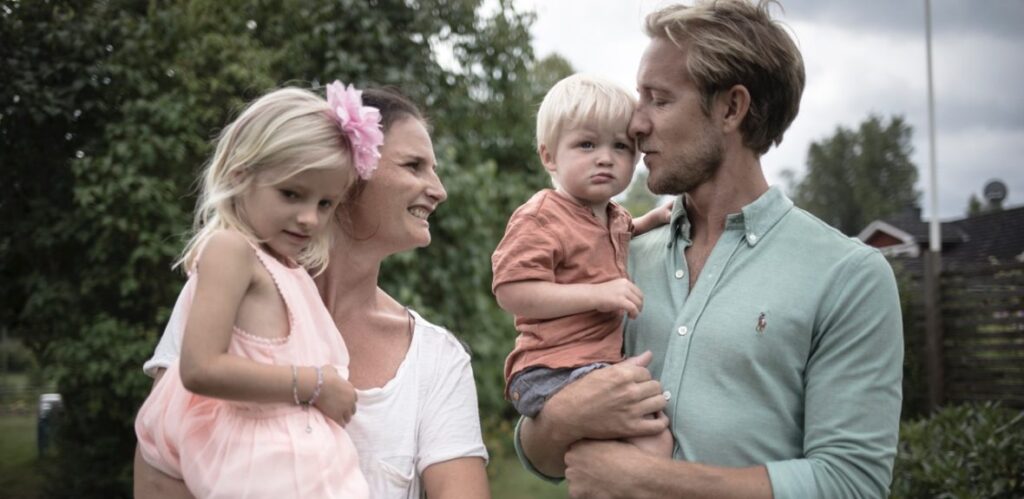Originally from Sweden, Petra moved to Brazil on an investor visa seven years ago, with Felix, now her husband. Today they run a successful pousada and bakery in the chic seaside city of Búzios. They live with their two children, Chloe and Leon.
“Our motto is that I want to regret things that I have done, not what I have never tried,” says Petra. “If by telling our story I can inspire one person, then I am happy.”
Petra’s fascination with Brazil began when she was just a child.
“In Sweden, there’s a well-known movie and at the end of the film they’re on a boat in the Rio bay. As we watched it, I remember saying to my parents, ‘I am going to live there one day’.”
Over the coming years at school, Petra seized any opportunity to explore her passion for Brazil.
“Whenever there were assignments where we’d be asked to write about other countries, I would always choose Brazil. I’d write about the social problems with the kids on the street in São Paulo.”
But it wasn’t until 13 years ago that she actually visited the country for the first time.
“I have travelled a lot around the world. This was the first place I came to where I felt, ‘I could actually live here. Not just stay for a month or two, but I could live here.’”
Petra returned to Sweden, where she spent a few difficult years coping with the loss of her mother and the end of her first marriage, as well as doing some soul searching about her career and her future.
“I was studying to become a lawyer at the time and I decided that I didn’t want that any longer. Instead I studied to become a teacher. After that was done, I felt that I needed to give something back to the world. I decided to go to Brazil and work as a volunteer.”
Just before she set off, she met Felix, who is now her husband.

“He didn’t have anything keeping him in Sweden, so together we worked as volunteers for four months. We lived in Rio, which was absolutely fantastic – it gave us perspective. We realised that we wanted to change the way we lived, the way we thought about things.”
Afterwards the pair travelled around South America, spending time in Uruguay, Brazil and Argentina. It was during this time that their hopes for the future became tangible plans.
“We already knew what we wanted – to have our own pousada. Who doesn’t have this dream to open a small hotel? That’s everyone’s dream I think. So we wrote the whole business plan, we checked all the costs and put together all the budgets. We just needed to find the right place for us to be.”
It was just three weeks before they were due to return to Sweden that they found the perfect house in Búzios. This is now both their family home and a chic, 5-room pousada called Villa Balthazar.

“Finding the house was key. If we’d returned to Sweden without that, back to familiarity, our friends and family, back to old routines, who knows how long it would have taken for us to get back to Brazil to find the right place. I think that was the key to everything.”
Before Petra and Felix landed on their idea to own a pousada, they explored a few other possibilities.
“Our first idea was to buy and rent out apartments. Because at that point in Rio, so many properties were expensive, but also ugly and of a low standard. Being Europeans, with a different sense of style, we thought this would be a good business opportunity. We could make things beautiful without it costing much. But working with builders and construction, and to have people taking care of the apartments, it felt too difficult. I realised quite early on that if you want a successful business in Brazil, you need to physically be here, overlooking things all the time.”
The reality of running a business in Brazil
When it comes to running a business in Brazil, Petra describes the experience as feeling “both fantastic and heavy at the same time”. She says to succeed in Brazil, it’s critical to surround yourself with a network of capable and trustworthy people.
“You need to find people you can trust and who can trust in you, so they know you will treat them well, that you will pay when you say you’re going to pay, that you will not use people. That takes time. It surprised me how long it took to build up that network actually.”
Petra and Felix pay R$1,250 per month to have lawyers on retainer full time for their two businesses and their own personal needs.
“Honestly, that is one of the most fantastic things we did. It took us four years before we contracted them full time, but it is so worth it. We can go to them with every question that we have. We just send things over and they fix everything in terms of bureaucracy. Basically, if you try to start doing these things yourself, you die.”

Brazil has a reputation for being bureaucratic and Petra says their lawyers have been their saving grace.
“It was so heavy the first years, because you can’t understand the rules and what it all means. You just constantly ask yourself, why do we have to do this? But the lawyers know the way Brazilian bureaucracy works – to them it’s natural, whereas we were constantly asking why we needed to do all of these crazy things. So, this is my number one recommendation if you are going to start a business here. Get a lawyer.”
The pousada is the family’s main business, which first opened its doors seven years ago. Petra says that initially they felt rather excluded from the other pousada owners in the town.
“Buzios is a very special place. There are many nationalities and languages here, people come from all over the world and most of them are in the tourism business, running hotels. At first we didn’t leave the house too much, we didn’t have too many friends, but slowly we started finding more people to hang out with.”
Petra says that the pousada market in Búzios has been particularly challenging in recent years.
“The country has entered an economic crisis in recent years and Booking.com and Expedia are just growing – the market is dying a little bit. There’s too much competition from very cheap places that have no love, they only want to fill up rooms with as many people as they can and make as much money as they can in a short time.”
When the couple first opened their pousada there were about 500 hotels in Búzios, now there are more than 1,300. “It makes everything very complicated for us. Ours is not the typical Brazilian pousada. We are trying to provide a different service to the rest of the pousadas in Búzios, but everyone is lowering their prices and so they are destroying the whole market. It’s very sad. You are not catching us at the most positive moment of our seven years here.”
Petra says she’s also noticed a downturn in the number of international visitors in recent years.
“That is what has changed and that’s why our business has not been as good these last years. Normally we would have a lot of Europeans in October, November and December, and then when there is the summer here we host more Brazilians and Argentines. In the last year, we have had no Europeans, so that’s been a huge change. That is because the economy is bad and when that happens, the violence in Rio goes up, and then the bad news spreads to the rest of the world, which scares people off and then they don’t come. Even though the city of Rio is far away from Búzios, nobody travels from overseas to only come to Búzios. Because of Rio’s bad reputation at the moment, people simply choose another place instead.”
In addition to their pousada, the couple also own a sourdough bakery, called Balthazar Bakery.
“One of our biggest struggles when we came here was that it was hard to find good bread. For the pousada, we had been baking our bread ourselves in the house. Felix decided that he needed a new project, so we decided to open a sourdough bakery. It was a lot of work to get there, and we are never going to be millionaires from that business, but now it is running and people are starting to know us and the products and we are very appreciative.”
Petra says the bakery is not so much for the tourists, it is their way of giving back to the locals.

“We needed a place like this in Buzios. The locals need good bread and we all need nice places to go, where service is high and where there is love. We are not in it to make money. We are very proud of what we have created. Finally after two years we have a great team working there. So we can relax and it is running itself, more or less. It’s fantastic.”
Petra says opening the bakery was relatively easy, but they’ve certainly had their share of stupid rules that they’ve been asked to follow.
“Whoever is writing those rules has no idea how things work inside a bakery or a restaurant. Then one day some inspector comes in and says, ‘you didn’t put these little black feet on this shelf, so that means you get a fine’. We got frustrated for the first year or so, but then we realised, we chose to come here. We do not want to waste our energy with these little things. But when you stop and think about it, it can be ridiculous. So yes, we definitely recommend getting a lawyer to help you navigate these issues.”
Applying for a Brazil investor visa
Petra and Felix applied for their Brazil investor visa over seven years ago, and the process has changed since then. The amount of money applicants now need to invest has increased to R$500,000.
“For us, everything was very smooth,” says Petra. “We found a person to help us with all the visa stuff before we left Brazil. First we found the house, then we started the process before we travelled to Sweden to get everything organised for our return. We signed papers and made payments from Sweden. That part was very simple for us. But you definitely need someone to help you. You cannot try to start that process yourself.”
The Brazil investor visa requires your business plan to first be approved by the Brazilian authorities. Once this step has been completed, you then need to apply for the investor visa in your home country at your nearest Brazil Consulate General.
It took Petra and Felix six months to get their visa approved, but it was a year before they actually returned to Brazil, because Petra had fallen pregnant with her first child Chloe.
“Two weeks after she was born, all the papers were ready. For us, it was very smooth because we were not in a hurry.”
Brazil – now and in the future
So, given the difficult economic and political situation in Brazil, how do the couple feel about the future?
“You have to feel hopeful,” says Petra. “Nothing has ever happened to me in terms of robberies or other types of crimes, but when you go to Rio, it’s a different kind of feeling. People are more closed, they move faster, there are more things happening. I don’t have the statistics to hand, but when you look at the number of people killed in Rio, a city of 12 million, and you compare those numbers to any European city, the figures aren’t that different.
“The world always likes to promote the bad news, instead of focusing on the good things that are happening here as well. It’s only ever the bad news about the violence and the crime that comes out. I just hope when the economy starts to turn that life will start to get better again. Many Brazilians here are not positive, they just want to leave Brazil and don’t understand why we came here.”
Petra’s advice for staying sane in Brazil
“I think the most important thing is to find a place where you really want to be,” says Petra. “Don’t just leave your country because you are not happy with your everyday life, or the weather or whatever. Because then, you will just be rootless. Everyday life will eventually come to the new place – all places have an everyday life. If you just want to escape your current country, you will never feel at home anywhere.”
Secondly, Petra reiterates the importance of trust. “You need to find people who you can trust. You need to be open to people and choose to trust them, instead of thinking that they are going to take advantage of you. It can be difficult as a gringo here in Brazil. People think you are a millionaire because you are from Europe and you have a house here. People don’t realise that we are not millionaires and that we work very hard to be here. It takes a while before people understand that.”
When it comes to their staff at the bakery and the pousada, Petra stresses that they don’t have people working for them, they have people working with them.
“We work together. We’re one big family here and it is all built on trust. We are always there for them when they need our help and they are always there for us. If it is a financial thing, we are always there. It is difficult to find this good team – you need to treat people very well to keep them. But we are so happy that we have been lucky with that. You need to give trust to be able to receive it.”
Of course, in order to find people who are trustworthy, you need to make some mistakes along the way.
“Yes, sometimes, we have trusted the wrong people. But you learn from this, you learn how to see the difference in who is trustworthy and who is not. You learn by doing. But if you choose not to trust, if you think everyone wants bad things for you, what’s the point in being here? You might as well stay in your own country.”
Ultimately, having the right mindset is essential to keeping sane when you move to Brazil.
“We decided to leave our country and this was our choice, nobody forced us, we didn’t have to do this, we are not refugees. Obviously Brazil is very different in terms of culture, mentality and behaviours. Some things drive you crazy, but you can never forget that you chose to come here. That doesn’t mean that you should leave yourself behind, because your roots and traditions are within you. Bring those good things from your culture and your country with you, but also understand that it is different here and that people are thinking differently. It is important to be open-minded and not to expect people here to be just like you.”
Find out how you can apply for an investment visa in Brazil.

